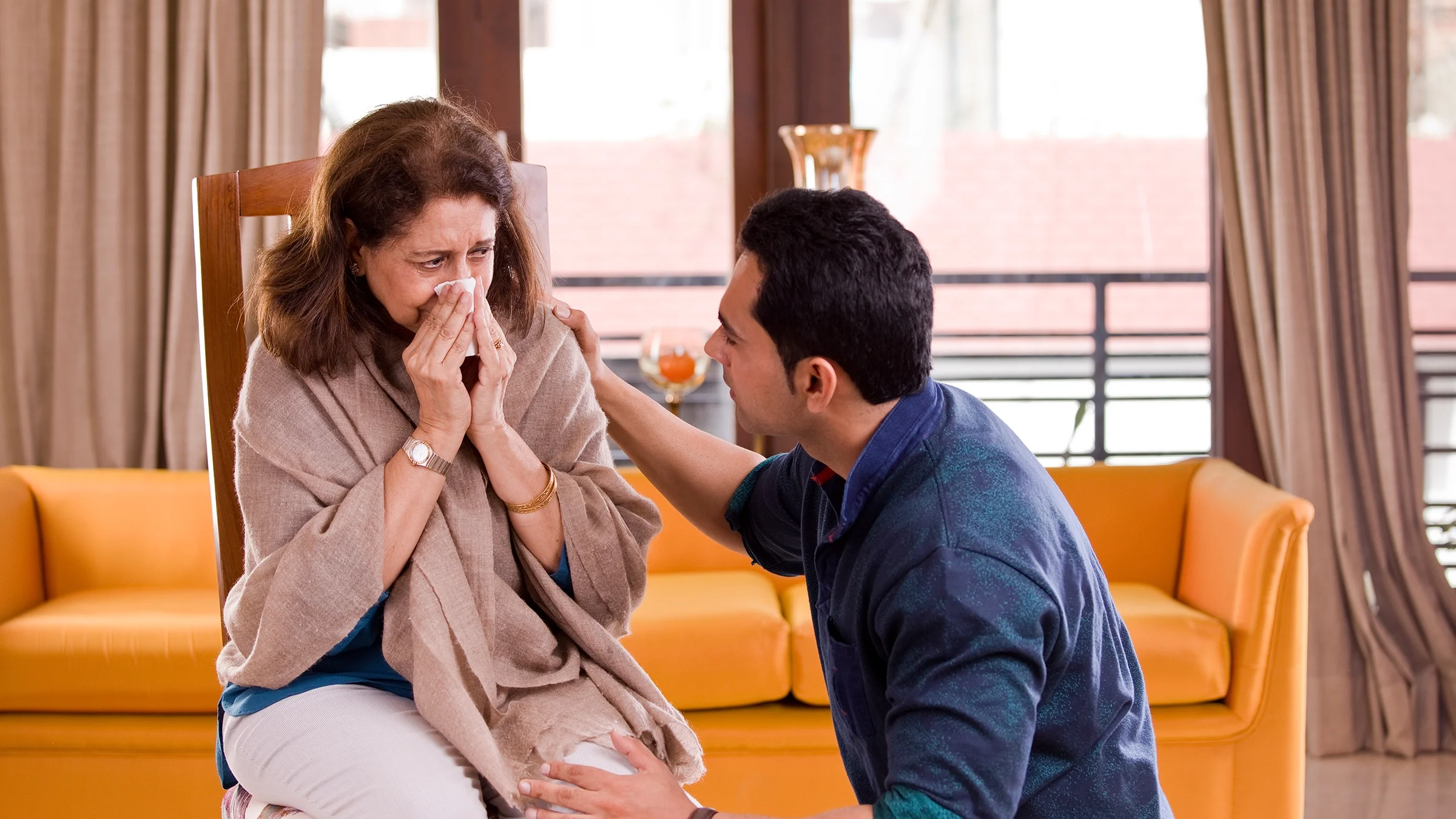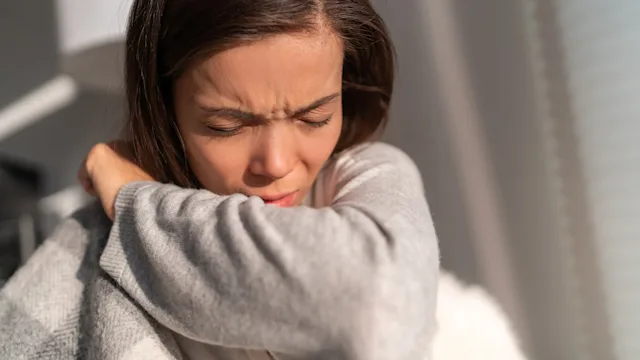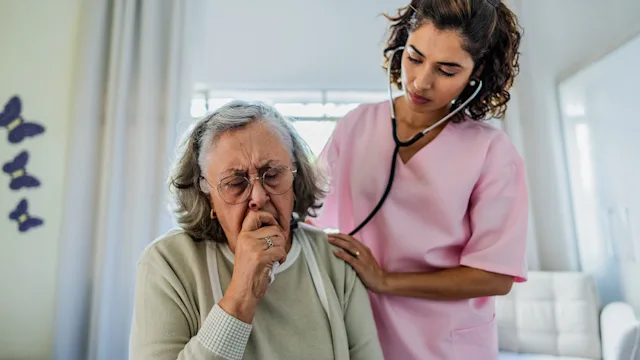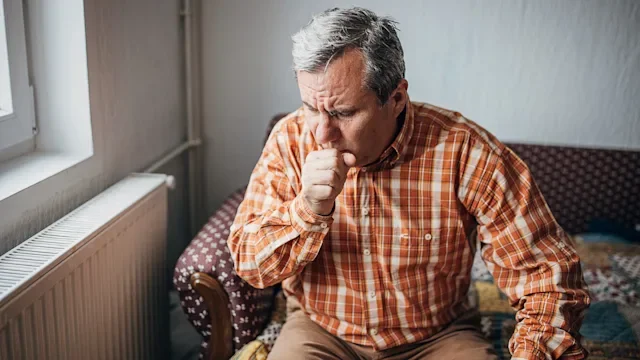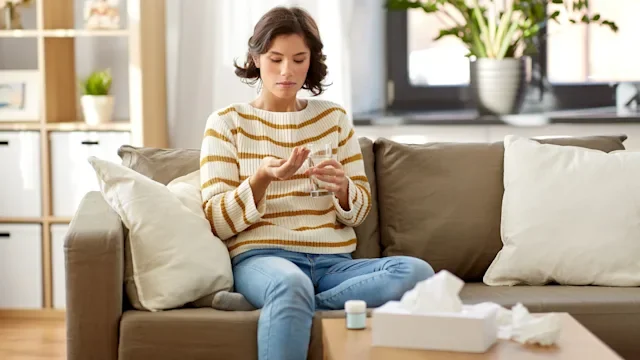Key takeaways:
Pneumonia is a lower respiratory tract illness that affects the lungs. It can be caused by viruses, bacteria, or, less commonly, fungi.
Pneumonia isn’t contagious. But many germs that cause pneumonia are contagious.
Not everyone who’s exposed to these germs will get sick. People who do get sick may develop other respiratory illnesses, like colds or sinus infections, instead of pneumonia.
Pneumonia is one of several illnesses that affect the respiratory system. The respiratory system includes your nose, throat, airways, and lungs. You may have many questions if you or someone you love is sick with pneumonia. And one of those questions may be whether you should worry about pneumonia being contagious.
Pneumonia itself isn’t contagious. But the germs that cause pneumonia can pass from person to person.
Is pneumonia contagious?
You can’t get pneumonia from someone who has pneumonia. Pneumonia itself isn’t contagious. But many of the viruses, bacteria, and fungi that cause pneumonia are contagious. You can pick up these germs from someone who’s sick with pneumonia.
But you might not develop pneumonia if you get sick with one of these germs. Viruses and bacteria that cause pneumonia also cause other respiratory illnesses, like:
It’s impossible to predict if someone will develop pneumonia when they get sick with pneumonia-causing germs. But you may be at higher risk for developing pneumonia from one of these germs in the following cases:
You’re over age 65.
You have a weakened immune system or diabetes.
You have chronic obstructive pulmonary disease (COPD), asthma, or another lung condition.
You have a chronic heart or liver condition.
You smoke.
You’re also more likely to develop pneumonia if you haven’t been vaccinated against viruses and bacteria that can cause pneumonia.
How does pneumonia spread?
Pneumonia doesn’t spread. But the viruses and bacteria that cause pneumonia can spread from person to person. Here’s how this works.
Viruses
Viruses that cause pneumonia spread through respiratory droplets. When someone is sick and they talk, sneeze, or cough, they expel tiny droplets of water. These droplets contain viruses and bacteria. If another person breathes in these droplets, they can get sick too.
Can’t stop coughing? Our experts review when to get medical care for a cough that won’t go away.
You don’t always need antibiotics to treat a cough. Here’s when you should take antibiotics for a cough and when you can treat your cough at home.
Can RSV turn into pneumonia? Yes, some respiratory illnesses, like respiratory syncytial virus (RSV), can increase your risk of developing pneumonia.
Viruses that cause pneumonia include:
The flu virus
Coronavirus
Common cold viruses
People with viral pneumonia are most contagious for the first few days of their illness. Most people stop being contagious after about a week.
Bacteria
Some bacteria that cause pneumonia also spread through respiratory droplets. For example, Mycoplasma pneumoniae spreads through respiratory droplets and is a major cause of walking pneumonia. Streptococcus pneumoniae can also spread through respiratory droplets. It can cause severe pneumonia.
But other bacteria that cause pneumonia don’t spread this way. Legionella is a bacteria that can cause serious pneumonia. Legionella grows in water and can contaminate common items like air conditioners, whirlpools, hot tubs, and humidifiers. You can only get sick with legionella if you breathe in water droplets from water sources that are contaminated with the bacteria.
People with bacterial pneumonia can spread the bacteria until they start treatment with antibiotics. People stop being contagious after taking antibiotics for 48 hours.
Fungi
Some fungi can also cause pneumonia. The most common causes of fungal pneumonia are:
Histoplasmosis
Blastomycosis
These fungi don’t pass from person to person. Fungal pneumonia is never contagious. You can only get sick with fungal pneumonia by breathing in these fungi from sources like contaminated soil.
How long is pneumonia contagious?
It depends on the type of pneumonia. Pneumonia caused by a fungal infection doesn’t pass from person to person. Someone with bacterial pneumonia may be able to spread germs until 48 hours after starting antibiotics. Viruses that cause pneumonia may be transmitted until symptoms (including fever) improve.
What can you do to prevent pneumonia?
Pneumonia can be a very serious illness. But there are steps you can take to lower your risk of developing pneumonia. Many actions that help prevent illnesses from the flu or COVID-19 will also lower your risk of getting sick with pneumonia. These include:
Frequent handwashing
Not touching your eyes, nose, and mouth
Avoiding people who are sick
Disinfecting frequently touched surfaces
You can also avoid getting pneumonia by keeping your immune system strong by:
Getting enough sleep
Eating foods that are rich in vitamins and minerals
Not smoking and limiting alcohol
It’s also important to stay up-to-date with vaccinations. Vaccines that protect against viruses and bacteria that cause pneumonia can keep you healthy. Consider getting vaccinated against:
RSV
The flu
COVID
Pneumococcus
Your healthcare team can help you decide if one or more of these vaccines is right for you.
Frequently asked questions
Adults can get pneumonia when a bacteria, virus, or fungus causes an infection inside the lungs. People with lung conditions or weakened immune systems are more likely to develop pneumonia.
Walking pneumonia is a term to describe a mild form of pneumonia. The name comes from the idea that since symptoms are mild, a person is likely to still be walking around doing their normal activities.
Yes, the virus that causes the flu can infect the lungs and cause pneumonia. You can reduce your risk of developing pneumonia from the flu by getting a yearly flu vaccine.
Adults can get pneumonia when a bacteria, virus, or fungus causes an infection inside the lungs. People with lung conditions or weakened immune systems are more likely to develop pneumonia.
Walking pneumonia is a term to describe a mild form of pneumonia. The name comes from the idea that since symptoms are mild, a person is likely to still be walking around doing their normal activities.
Yes, the virus that causes the flu can infect the lungs and cause pneumonia. You can reduce your risk of developing pneumonia from the flu by getting a yearly flu vaccine.
The bottom line
Pneumonia is a lung infection that can be caused by viruses, bacteria, and fungi (this is less common). Pneumonia itself isn’t contagious. But many of the viruses and bacteria that can lead to pneumonia are contagious. You can lower your risk of getting pneumonia by washing your hands, avoiding people who are sick, and staying up-to-date with vaccines.

Why trust our experts?



References
American Lung Association. (2025). Is pneumonia contagious?
American Lung Association. (2025). The connection between influenza and pneumonia.
Centers for Disease Control and Prevention. (2023). Risk factors for pneumonia.
Centers for Disease Control and Prevention. (2024). Fungal community-acquired pneumonias.
Centers for Disease Control and Prevention. (2024). How flu spreads.
Centers for Disease Control and Prevention. (2025). About Legionnaires’ disease.
Heo, J. Y., et al. (2018). Effects of influenza immunization on pneumonia in the elderly. Human Vaccines and Immunotherapeutics.
Shah, N. B. (2024). Pneumonia symptoms, causes, and risk factors. UPMC Health Beat.
Wisconsin Department of Health Services. (2025). Immunizations: Pneumococcal disease (streptococcus pneumoniae).
World Health Organization. (2022). Legionellosis.

